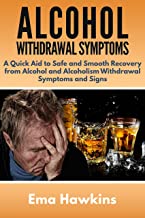Alcohol Withdrawal
Resources for Patients and Caregivers
Symptoms that occur when someone stops using alcohol after a period of heavy drinking. Symptoms of alcohol withdrawal can vary widely in severity. In severe cases, the condition can be life-threatening.
Symptoms may occur from two hours to four days after stopping alcohol. They may include headaches, nausea, tremors, anxiety, hallucinations, and seizures.
In many cases, alcohol withdrawal requires medical treatment and hospital admissions. Medications may be used to treat physical symptoms while counseling and support groups help with controlling drinking behavior.
Cluster Number:
Wiki Number: 05-Alcohol Withdrawal
Diagnosis: Alcohol Withdrawal
US Patients:
World Patients:
Sex Ratio:
Age Onset:
Brain Area: May alter genetics and GABA receptors In the brain. May have prolonged withdrawal due to dopamine underactivity.
Symptoms: anxiety, shakiness, sweating, vomiting, hallucinations and delerium
Progression: Start about six hours after the last drink, worst at 24-72 hours, improve by seven days.
Causes:
Medications: Benzodiazepines but these also have negative side effects.
Therapies:
Youtube Video:
Alcohol Withdrawal Symptoms Overview
Amazon or Library Book: Alcohol Withdrawal Symptoms
Click the book to link or order from Amazon.

